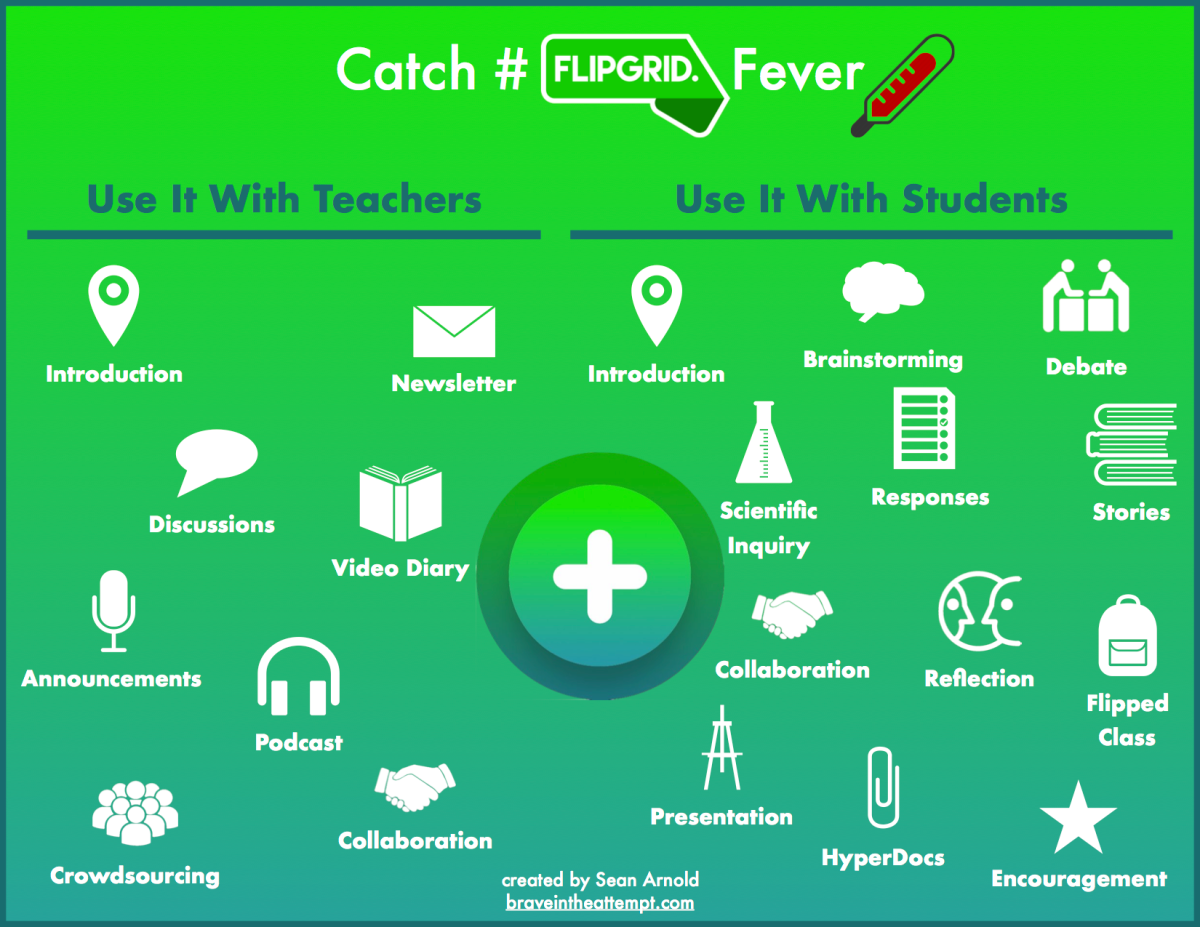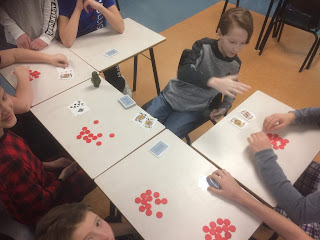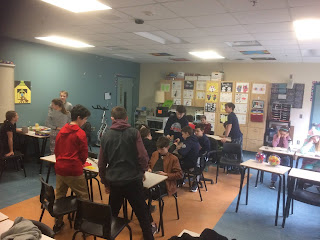
We have been using Flipgrid quite a lot this year - it's one of my favourite new finds. I dabbled a bit last year, but this year I've made a concerted effort to use it more consistently. I've made some progress in that area, and I'm looking forward to using it more effectively as time goes by.
This is the tool fo you if you have ever wanted a way for students to provide a verbal/video response to a prompt without needing to host the video somewhere (eg film on an iPad, then upload to Google Drive, then share... so many steps!) Students can log in with their school email credentials and record a video right away. The teacher has control over whether the videos are private or viewable by other students in the class (or, in fact, by other students with the link to the "grid")
There are lots of great resources created by teachers for integrating the use of Flipgrid in the classroom and beyond. For example :
Flipgrid eBook - The Educators' Guide to Flipgrid. This has everything you need to get started. How to sign up, how to give your students access, how to go beyond simple videos.
Flipgrid Integration - So many ideas for integrating Flipgrid in specific subject areas, for specific ages!
Following Global School Play Day (see last week's post), I asked my students to reflect on their experiences. I recorded a video prompt in Flipgrid, and provided them with some reflection questions to consider.
I was out sick, so this was an activity that I was able to leave for my students to complete with a substitute (another perk to using Flipgrid!). Many responses were thoughtful and detailed some (as is often the case in middle school when there is a substitute) lacked depth. When I do this again next year, I will take more time to prepare my students to respond thoroughly.
Most of the feedback I received was very positive. Students were happy to have had a "break from the normal school day." For the most part, students felt that the expectations had been followed by their peers, and that it was a fun experience. Many of them commented on the fact that it was enjoyable to be able to do what they wanted, when they wanted, speaking to the fact that a "normal" school day is generally structured by the teacher. I am interested in exploring how more of that freedom can be incorporated into my classroom.
One of the comments that was surprising to me came from a grade 8 student. She stated first that she enjoyed Global School Play Day, but that, "I wished there were more activities I could do, because I was kind of bored. Like, if I was allowed to, like, build a fort, I would be pretty happy."
I was surprised by this response because I tried very hard to be clear that I was not putting any limits on what students were "allowed" to do. In fact, I explicitly stated that, as long as they were following the expectations we established together, anything was possible. All of the students in my classroom chose to spend most of the day playing either cards or board games, so I wonder if she felt that building a fort would break some sort of unspoken rule. I will absolutely follow-up with this particular student, to determine how I could have made it clear that any activity was possible.
 |
| Students' Flipgrid responses |
Another comment that came from multiple students, and one that didn't surprise me at all, was that they wished there had been more organization to the day. They are so used to having their time scheduled for them, they struggled when they were given freedom to choose their own paths. I see this in project work as well, and I hope that having experienced this day of unstructured play will allow them to draw some comparisons when it comes time to choose their passion projects, or other free-choice ways of showing their learning.
Thinking creatively, making decisions autonomously, and holding themselves accountable are skills I strongly encourage in my students. These are the skills they will need moving forward. These are skills we could all stand to improve upon.











